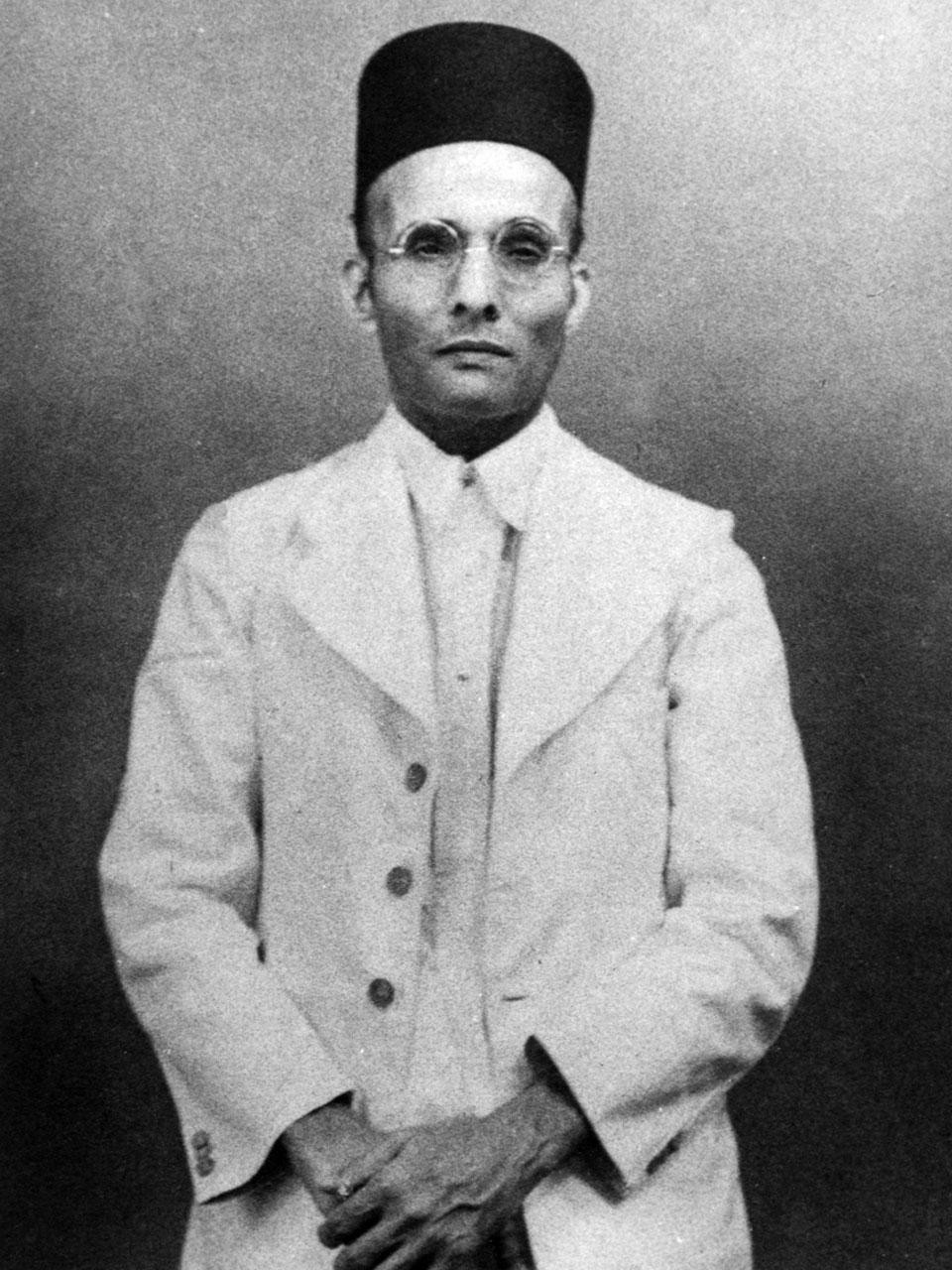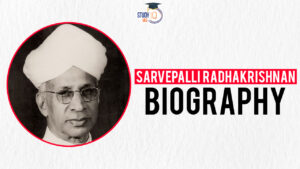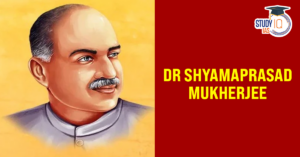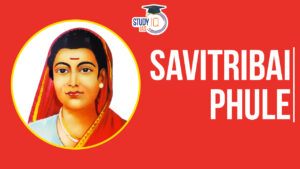Table of Contents
Context: Veer Savarkar Jayanti is annually observed on 28th May to commemorate the birthday of Vinayak Damodar Savarkar (1883-1966), a great freedom fighter, political thinker, poet, and social worker. Savarkar was born in Bhagur, Maharashtra. He was the trailblazer of India’s freedom struggle, one of its leaders to demand complete freedom from Britain years before the mainstream freedom movement.
Prime Minister Shri Narendra Modi honoured Veer Savarkar Ji on his birth anniversary. “The grateful nation will never be able to forget the story of his unparalleled courage and struggle in the freedom movement. His sacrifice and devotion for the nation will keep illuminating the path towards building a developed India”, Shri Modi said.
Veer Savarkar: Unravelling the Life and Legacy of a Revolutionary Nationalist
In the annals of India’s struggle for independence, few names command the same fervour as Veer Savarkar. An enigmatic figure who donned various roles as a revolutionary, freedom fighter, writer, and political leader, Vinayak Damodar Savarkar, popularly known as Veer Savarkar, left an indelible mark on the country’s history.
Born in 1883 in British-ruled India, V. D. Savarkar’s unwavering dedication to liberating the nation from colonial shackles earned him both admiration and criticism. Throughout his life, he ignited the spirit of nationalism, inspiring countless individuals to fight for their motherland and formulating radical ideas that continue to shape India’s socio-political landscape to this day. This article seeks to delve into the life and legacy of Veer Savarkar, exploring the multifaceted facets of this iconic and polarising figure who remains a captivating subject in the tapestry of Indian history.
Vinayak Damodar Savarkar Biography
Vinayak Damodar Savarkar was a multifaceted figure in Indian history, and his legacy is complex and debated. Read this article below to learn all about the VD Savarkar Biography.
Vinayak Damodar Savarkar Birth Anniversary
The birth anniversary of Vinayak Damodar Savarkar, popularly known as Veer Savarkar, is celebrated on May 28, 2024. Veer Savarkar’s early life was marked by a combination of academic brilliance, patriotic fervour, and a desire to see India free from British rule. He was born in the village of Bhagur, which is now located in the Nashik district of Maharashtra, India, on 28 May 1883. His full name was Vinayak Damodar Savarkar (V. D. Savarkar), and he was the eldest of four siblings.

VD Savarkar’s Early Life
- From a young age, V. D. Savarkar displayed exceptional intelligence and a voracious appetite for learning. His father, Damodar Savarkar, played a significant role in nurturing his son’s love for education. Young Vinayak was well-versed in Marathi and English and displayed a remarkable aptitude for mathematics.
- In 1902, at the age of 18, he travelled to the city of Bombay (now Mumbai) to pursue higher studies. There, he joined the renowned Fergusson College in Pune. It was during his college days that Veer Savarkar’s passion for the freedom struggle was ignited, and he became deeply influenced by the writings of Western philosophers and Indian nationalist leaders.
Contribution of Veer Savarkar
- Founded Mitra Mela in 1899, which later became the Abhinav Bharat Society in 1904.
- Studied law in London, where he became involved with the Free India Society and other revolutionary activities.
- Coined the term Hindutva and articulated it in his 1923 pamphlet “Hindutva: Who is a Hindu?“
- Became the President of the Hindu Mahasabha in 1937.
- Opposed the Quit India Movement in 1942.
- Established the Patit Pavan Mandir, a temple open to all Hindus regardless of caste.
Veer Savarkar’s Journey of Activism and Leadership
Veer Savarkar’s professional and political life was marked by his unwavering commitment to the cause of Indian nationalism and his relentless efforts to achieve independence from British rule. Here is an overview of his professional and political journey:
Professional Life
- Education and Early Career: After completing his studies at Fergusson College in Pune, V.D. Savarkar went to London in 1906 to pursue further education. He enrolled at the University of London and became the first Indian to earn a degree in law from there. During his stay in London, he also became involved in various activities to further the cause of India’s independence.
- Advocacy and Writing: Veer Savarkar was a prolific writer and an eloquent orator. He used his literary skills to advocate for the concept of Hindutva, which he defined as the essence of Hindu identity and culture. His writings and speeches resonated with many Indians and played a crucial role in shaping nationalist sentiments.
- Abhinav Bharat Society: In 1904, while still in India, Veer Savarkar founded the Abhinav Bharat Society, a revolutionary organisation aimed at freeing India from British rule. The society propagated the ideas of armed resistance and direct action against the colonial government.
Political Life
- Advocacy for Complete Independence: Vinayak Damodar Savarkar was a strong advocate of complete independence for India, as opposed to the idea of dominion status or limited autonomy. He firmly believed that India should be a sovereign nation, free from any form of foreign rule.
- Opposition to Partition: During the later years of the freedom struggle, when the idea of partitioning India into separate Hindu and Muslim nations was gaining momentum, Veer Savarkar opposed the partition and emphasised the importance of a united India.
- Hindu Mahasabha: V. D. Savarkar was associated with the Hindu Mahasabha, a Hindu nationalist political party. He became one of the prominent leaders of the organisation and played a key role in shaping its ideology and policies.
- Alliance with the British: One aspect of Veer Savarkar’s political life that has been a subject of controversy is his stance during World War II. He believed that cooperating with the British during the war could provide an opportunity for India to achieve independence. This stance was met with criticism from some quarters of the nationalist movement.
- Post-Independence Political Engagement: Following India’s independence in 1947, V. D. Savarkar remained actively engaged in politics. He worked towards the protection of Hindu rights and interests and advocated for a strong and united India.
Veer Savarkar and War of Indian Independence
This seminal work, written by Vinayak Damodar Savarkar was published in 1909, is an insightful and provocative account of the Indian Rebellion of 1857, which marked a significant milestone in India’s struggle against British colonial rule.
In this book, Veer Savarkar offers a compelling reinterpretation of the Revolt of 1857 uprising, challenging the prevailing narrative propagated by British historians that labelled it as a mere “Sepoy Mutiny.” Instead, he presents the rebellion as a comprehensive and widespread struggle for independence, asserting that it was the first united effort by Indians to overthrow British rule.
Key Features of The First War of Indian Independence
- Reimagining the Rebellion: Veer Savarkar delves into various historical accounts and primary sources to piece together the events leading up to and during the 1857 revolt. He emphasises that the uprising involved a broad cross-section of Indian society, including soldiers, peasants, landlords, intellectuals, and leaders from different regions and communities, all united by a common aspiration for independence.
- Heroes and Heroines: The book pays homage to the bravery and sacrifice of many Indian leaders and Freedom Fighters who played significant roles during the rebellion. It showcases lesser-known figures who contributed to the struggle, along with highlighting the prominent leaders of the uprising.
- Nationalistic Sentiments: Veer Savarkar uses the historical narrative to evoke a sense of national pride and unity among Indians. He encourages readers to draw inspiration from the valour of their ancestors and to carry the torch of freedom forward in their own time.
- Impact on Indian Nationalism: “The First War of Indian Independence” had a profound impact on the Indian nationalist movement. Veer Savarkar’s reinterpretation of the 1857 rebellion provided a historical basis for the burgeoning freedom struggle, fueling the spirit of nationalism and resistance against British rule.
It’s essential to note that the British authorities banned Veer Savarkar’s book due to its strong anti-colonial sentiments and its potential to incite further resistance against British rule. Despite this, the work circulated underground and played a crucial role in shaping the nationalist discourse in India.
“The First War of Indian Independence” remains a significant historical text and a testament to Vinayak Damodar Savarkar’s intellectual prowess and commitment to the cause of Indian independence. It continues to be studied, analysed, and debated by historians and scholars as a valuable account of the events surrounding the 1857 uprising and its impact on India’s struggle for freedom.
VD Savarkar: Pioneering Social Change
Veer Savarkar’s contributions as a social reformer were significant, and he actively advocated for various social and cultural reforms aimed at transforming Indian society. While he is primarily known for his role in the Indian independence movement, it’s essential to recognise his efforts in bringing about positive changes within society. Here are some of the key aspects of his contributions as a social reformer:
- Caste Equality and Abolition of Untouchability: Savarkar was a staunch advocate of social equality and the eradication of the caste system. He believed in the inherent dignity and worth of every individual, regardless of their caste or social background. He actively campaigned against untouchability and worked to promote the idea of a casteless society.
- Women’s Rights: Savarkar was progressive in his views on women’s rights and empowerment. He emphasised the importance of women’s education, participation in public life, and economic independence. He encouraged women to break free from social constraints and actively contribute to the nation’s growth and development.
- National Language and Linguistic Unity: Savarkar was a strong proponent of promoting Hindi as the national language of India. He believed that linguistic unity was essential to foster a sense of national identity and to strengthen the unity of the country.
- Education and Nationalism: As a social reformer, Savarkar stressed the importance of education in nurturing patriotic and nationalistic sentiments. He believed that a well-informed and educated citizenry was vital for the progress and prosperity of the nation.
- Emphasis on Indigenous Culture and Traditions: Savarkar emphasised the importance of preserving and promoting India’s rich cultural heritage and traditions. He believed that embracing and celebrating one’s indigenous culture was crucial in shaping a strong national identity.
- Opposition to Social Evils: Throughout his life, Savarkar spoke out against social evils such as child marriage, superstitions, and religious orthodoxy. He encouraged progressive thinking and the rejection of regressive practices that hindered the nation’s progress.
- Advocacy for Individual Freedom: Savarkar championed individual freedom and liberty principles. He believed that individuals should have the freedom to express their thoughts, ideas, and beliefs without fear of persecution or discrimination.
Veer Savarkar and Hindu Mahasabha
Veer Savarkar’s association with the Hindu Mahasabha was a crucial aspect of his political career. The Hindu Mahasabha was a right-wing Hindu nationalist organisation founded in 1915 to promote Hindu interests and foster a sense of Hindu unity and identity. Here’s a closer look at Savarkar’s connection with the Hindu Mahasabha:
- Co-founder and Leader: Veer Savarkar played a significant role in the formation of the Hindu Mahasabha. He was one of the founding members of the organisation and became a prominent leader within its ranks. His influence and intellectual contributions helped shape the ideology and policies of the Hindu Mahasabha.
- Hindutva Ideology: Savarkar is credited with popularising the concept of Hindutva, which emphasises the cultural, religious, and historical unity of Hindus. The Hindu Mahasabha adopted this ideology, and it became one of the fundamental principles of the organisation. Hindutva sought to create a sense of pride and unity among Hindus, irrespective of caste, language, or regional differences.
- Advocacy for Hindu Rights: The Hindu Mahasabha, under Savarkar’s leadership, advocated for the protection of Hindu rights and interests. It promoted the idea that Hindus should assert themselves politically and culturally to safeguard their identity and heritage.
- Opposition to Partition: During the tumultuous period leading up to India’s independence and partition in 1947, the Hindu Mahasabha opposed the idea of dividing the country along religious lines. Savarkar, in particular, argued for a united India where Hindus and Muslims could coexist as equal citizens.
- Collaboration and Controversy: While the Hindu Mahasabha cooperated with other nationalist organisations, including the Indian National Congress, it also faced criticism for its stance on certain issues. Savarkar’s approach during World War II, wherein he advocated for supporting the British war effort, led to controversy and strained relations with some sections of the freedom movement.
- Post-Independence Engagement: After India gained independence, the Hindu Mahasabha continued to function as a political entity. However, it faced challenges from other political parties and gradually lost its prominence on the national stage.
VD Savarkar’s Stand during Quit India Movement
During the Quit India Movement of 1942, Veer Savarkar took a stance that has been a subject of debate and controversy. The Quit India Movement, also known as the August Movement, was a significant civil disobedience movement launched by Mahatma Gandhi and the Indian National Congress against British colonial rule, demanding immediate independence for India. Savarkar’s stand during this critical period can be summarised as follows:
- Initial Support for the Movement: At the outset of the Quit India Movement, Veer Savarkar expressed his support for India attaining complete independence from British rule. He acknowledged the significance of the mass agitation and the demand for the British to “Quit India.”
- Arrest and Internment: Despite his initial support, the British authorities were cautious of Savarkar’s nationalist activities and potential influence on the movement. In August 1942, during the early days of the Quit India Movement, Savarkar was arrested by the British colonial administration, along with several other prominent leaders of the Hindu Mahasabha.
- Shift in Stance: While in prison, Savarkar and some members of the Hindu Mahasabha took a different approach from other major nationalist parties, such as the Indian National Congress, during the movement. They believed that supporting the British war efforts against the Axis powers during World War II would provide an opportunity to negotiate India’s independence once the war ended.
- Proposal for Conditional Support: In a letter dated August 27, 1942, addressed to the Viceroy, Lord Linlithgow, Savarkar offered conditional support for the British war effort. He proposed that if the British agreed to grant India complete independence after the war, the Hindu Mahasabha would provide their support in the war against the Axis powers. This approach was met with mixed reactions, and the British rejected the proposal.
- Criticism and Controversy: Savarkar’s stance during the Quit India Movement, which suggested conditional cooperation with the British, was met with criticism from many leaders of the Indian independence movement. Some perceived his position as compromising the core principles of the freedom struggle and undermining the spirit of the Quit India Movement.
Veer Savarkar’s Response to ‘Two Nation One Country’ Theory
Veer Savarkar, the proponent of Hindutva and a prominent leader of the Hindu Mahasabha, had a different perspective from the “Two-Nation Theory” propagated by the Muslim League and Muhammad Ali Jinnah. Savarkar firmly believed in the concept of a united India, where people of all religions and communities could coexist as equal citizens. Savarkar’s response to the “Two-Nation Theory” can be summarised as follows:
- United India: Unlike the proponents of the “Two-Nation Theory,” Savarkar advocated for a united India, where Hindus, Muslims, Sikhs, Christians, and people of all other religions would live together in harmony. He believed in the cultural and historical unity of India, where multiple religious communities had coexisted for centuries.
- Equal Rights: Savarkar emphasised that all citizens of India, regardless of their religious beliefs, should have equal rights and opportunities under a united and secular India. He was against the idea of religious divisions determining political and territorial boundaries.
- Hindutva as Unifying Force: Savarkar’s concept of Hindutva did not seek to marginalise or exclude any religious community. Instead, he envisioned it as a unifying force that would assimilate diverse cultural and religious identities within the broader framework of Indian nationalism.
- Rejection of Partition: Savarkar was critical of the demand for the creation of Pakistan based on religion. He believed that such a division would lead to further communal tensions and undermine the integrity of India as a diverse and inclusive nation.
Imprisonment to Veer Savarkar
- Arrested in 1909 for revolutionary activities and sentenced to two life terms (50 years) of imprisonment.
- Incarcerated in the Cellular Jail, Andaman and Nicobar Islands (Kala Pani) from 1911.
- Advocated for the abolition of untouchability and worked towards the eradication of the caste system.
- Accused (but acquitted) in the assassination of Mahatma Gandhi in 1948 due to a lack of evidence.
Veer Savarkar: Conflict and Controversy with Mahatma Gandhi Assassination
The assassination of Mahatma Gandhi and Veer Savarkar’s alleged involvement in the conspiracy remain a contentious and debated topic in India’s history.
On January 30, 1948, Mahatma Gandhi, the preeminent leader of India’s freedom movement, was assassinated in New Delhi. He was shot three times at point-blank range by Nathuram Vinayak Godse, a former member of the Hindu Mahasabha, an organisation with which Savarkar was associated.
Nathuram Godse, the assassin of Mahatma Gandhi, was a former follower of Veer Savarkar and a member of the Hindu Mahasabha. There have been claims that Savarkar’s ideology, which emphasised Hindu nationalism and Hindutva, may have influenced Godse’s actions. However, it is important to note that there is no concrete evidence to directly link Savarkar to the assassination plot.
Following the assassination, investigations were carried out, and Veer Savarkar was arrested on charges of conspiracy. He was accused of playing a role in planning the assassination, and his alleged association with Godse raised suspicion. However, during the trial, Savarkar maintained that he had no knowledge of Godse’s intentions and was not involved in any plot to kill Gandhi.
Savarkar was ultimately acquitted of all charges due to a lack of evidence. The court did not find any direct link between Savarkar and the assassination, and he was released. However, some critics argue that the trial was not entirely fair and that Savarkar’s association with Hindu nationalism and Hindutva might have influenced public opinion.
The assassination of Mahatma Gandhi remains a dark chapter in India’s history, and the alleged involvement of Nathuram Godse, who had ties to the Hindu Mahasabha, has continued to be a subject of controversy. While Veer Savarkar was acquitted in the trial, his association with Godse and the Hindu Mahasabha has led to ongoing debates and differing perspectives on his role in the events leading up to the assassination.
It is essential to approach historical events with a critical mindset and to rely on verified historical sources and evidence to understand the complexities and nuances surrounding these events and the individuals involved. The assassination of Mahatma Gandhi and its aftermath have left a lasting impact on India’s political landscape and continue to be subjects of study, discussion, and interpretation.
Veer Savarkar’s Legacy in the Post-Independence Era
After India gained independence in 1947, Veer Savarkar continued to play a significant role in Indian politics and society. Here are some key aspects of Veer Savarkar’s engagement with post-independence India:
- Political Activities: Savarkar remained active in politics and continued to be associated with the Hindu Mahasabha. He contested elections and supported candidates aligned with his ideology. However, the Hindu Mahasabha gradually lost political prominence to other parties, and Savarkar’s influence on the national political stage diminished over time.
- Advocacy for Cultural and National Identity: Throughout his life, Savarkar emphasised the importance of India’s cultural and national identity. He sought to promote a sense of pride in India’s ancient civilisation, history, and traditions, emphasising the need for cultural unity among Indians.
- Views on Minority Rights: Savarkar’s ideas on the rights and status of religious minorities in post-independence India were a subject of debate. While he advocated for equal rights for all citizens, some critics contended that his ideology had a Hindu majoritarian inclination.
- Support for Social Reforms: Savarkar continued to advocate for social reforms, including the abolition of untouchability and the upliftment of marginalised sections of society. However, his views on these issues were sometimes viewed as conservative by some social reformers.
- Literature and Writings: Even after independence, Savarkar remained a prolific writer. He penned books and articles on a wide range of topics, including nationalism, Hindu culture, and India’s history. His writings continued to influence followers and shape public discourse.
- Legacy and Controversy: Veer Savarkar’s legacy in post-independence India remains a matter of controversy and varied interpretations. While he is celebrated by some as a nationalist leader and social reformer, others criticise aspects of his ideology and political stances.
- Recognition and Commemoration: In later years, efforts were made to commemorate Veer Savarkar’s contributions to India’s struggle for independence. Various memorials, institutions, and awards were established in his honour.
Veer Savarkar Death
Atmahatya Nahi Atmaarpan is an article that Vinayak Damodar Savarkar wrote just before he died. According to the writing, one should be permitted to end their life once their primary goal in life has been accomplished. This is known as atmaarpan, or fasting till death. Savarkar announced that he would fast until he died on February 1, 1966, and he did not take any food and refused to eat anything. He passed away in his Bombay home on February 26, 1966.
| Other Important Articles | |
| Mangal Pandey | Subhash Chandra Bose |
| Lala Lajpat Rai | Swami Vivekanand |
| Bhagat Singh | Bardoli Satyagraha |
| Home Rule Movement |
Non Cooperation Movement |


 Dr. Sarvepalli Radhakrishnan Biography, ...
Dr. Sarvepalli Radhakrishnan Biography, ...
 Dr. Shyama Prasad Mukherjee Biography, L...
Dr. Shyama Prasad Mukherjee Biography, L...
 Savitribai Phule Biography, Early Life, ...
Savitribai Phule Biography, Early Life, ...





















